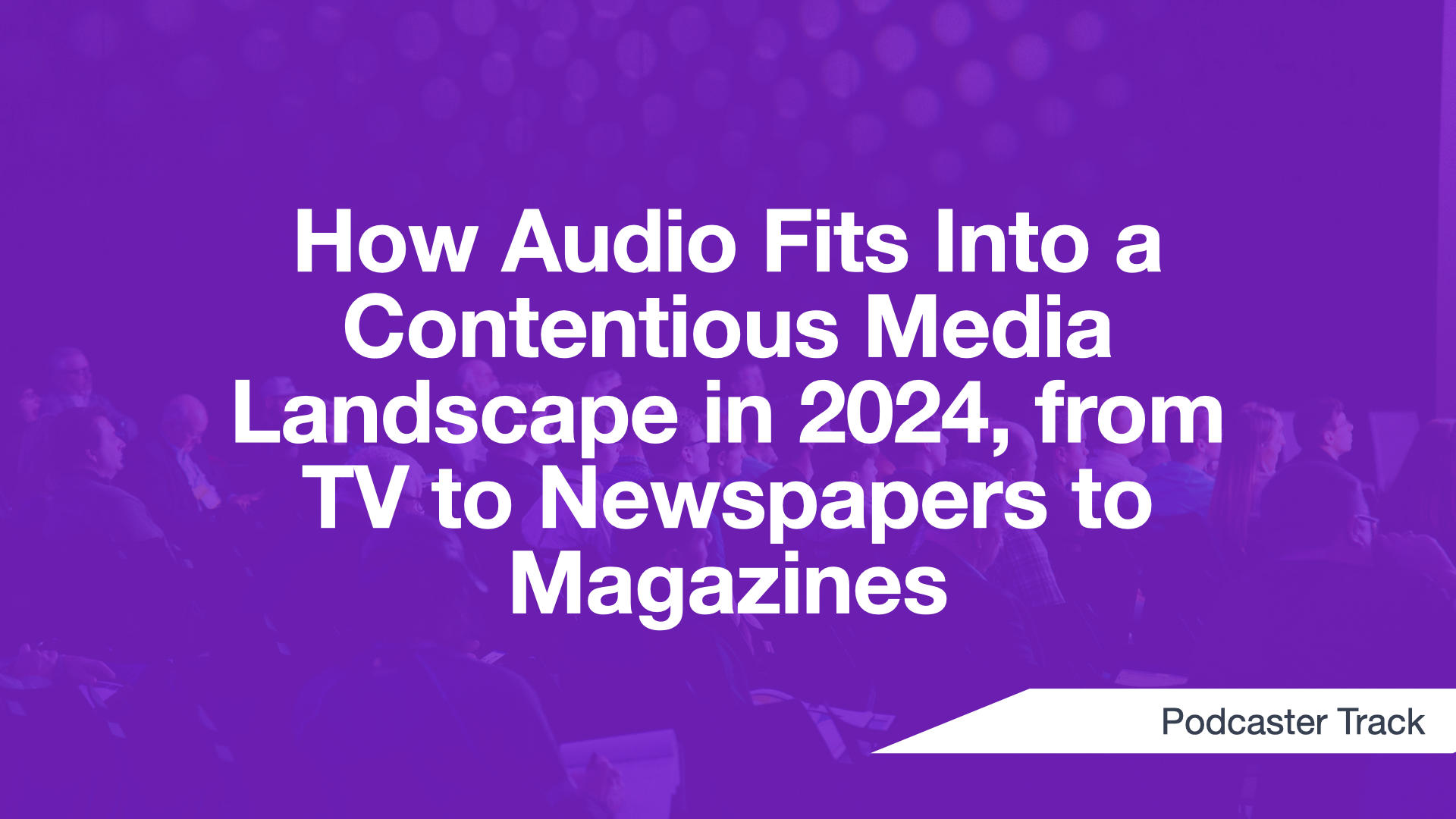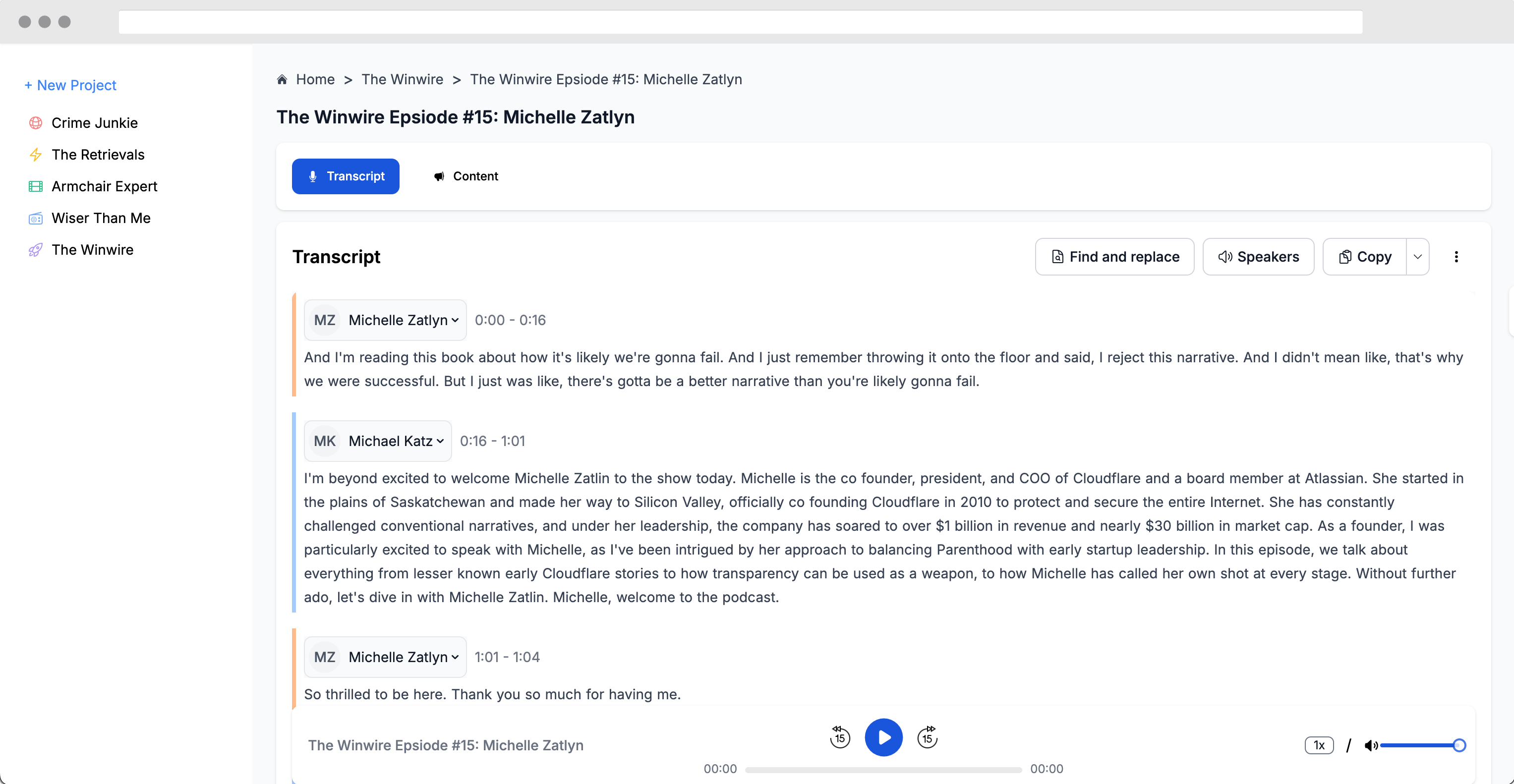How Audio Fits Into a Contentious Media Landscape in 2024, from TV to Newspapers to Magazines

Key Takeaways
No Guaranteed Stability in Media Organizations: Heather Keets Wright emphasized that being part of a larger media organization does not guarantee stability. Podcasters must remain entrepreneurial and continuously prove their value, regardless of their affiliation with a media brand.
Audience Engagement Across Platforms: Katie Kramer highlighted the importance of understanding and catering to different audience preferences across various media platforms. While some audiences prefer traditional media, others engage more with digital or event-based content.
Balancing News and Personality: Both speakers agreed that a successful podcast must balance delivering news and showcasing personality. The emotional connection and banter between hosts can be as crucial as the news content itself.
Monetization Through Custom Content: Heather Keets Wright discussed the financial success of custom content in podcasting, which funds editorial efforts. This model allows for the creation of high-quality content while maintaining financial viability.
Cross-Promotion and Network Power: Katie Kramer mentioned the benefits of cross-promotion within a media network, leveraging the collective strength of multiple platforms to enhance audience reach and engagement.
Overview
Bob Safian, former editor-in-chief of Fast Company and host of the Rapid Response podcast, led a discussion on the role of audio in the media landscape for 2024.
Katie Kramer, supervising producer for CNBC's Squawk Box and host of Squawkpod, and Heather Keets Wright, SVP of audio and video for Fast Company and Inc., shared their insights. Wright emphasized that being part of a larger media brand doesn't guarantee stability and that podcasters must remain entrepreneurial. Kramer highlighted the unique position of CNBC's Squawk Box, which leverages its established brand to engage audiences through both TV and podcast formats.
Both speakers discussed the importance of understanding and catering to different audience preferences across various media channels, with Wright noting the distinct audiences for print, digital, and event content, and Kramer emphasizing the emotional connection and routine engagement of CNBC's audience.
They also touched on the business models supporting their audio efforts, with Fast Company focusing on branded content and CNBC integrating podcast sponsorships within a broader network strategy.
Core Concepts
No Guaranteed Stability in Media Organizations
Heather Keets Wright dispelled the myth that being part of a larger media organization guarantees stability. She stressed the need for podcasters to remain entrepreneurial and continuously prove their value.
Key Points:
No inherent stability in media organizations
Podcasters must be as entrepreneurial as independent creators
Continuous innovation and booking are essential
Examples:
Heather's team of four podcasters and twelve video producers must constantly innovate and prove their worth, despite being part of a larger organization
The marketing and promotion benefits of being associated with a media brand are real but not guaranteed
Quotes:
There is no guaranteed stability. There just isn't. You have to be as entrepreneurial as you would if you were not associated
You still have to prove yourself. I still have to make sure my audio team is doing the same things they would be doing if they were out on their own
Audience Engagement Across Platforms
Katie Kramer discussed the importance of understanding and catering to different audience preferences across various media platforms. She emphasized the need to create content that resonates with audiences, whether they consume it via print, digital, or events.
Key Points:
Different platforms attract different audience segments
Content must stay true to the brand while adapting to the platform
Avoid pushing audiences to other platforms; respect their preferred mode of consumption
Examples:
Fast Company and Inc. have loyal audiences who prefer print magazines, digital content, or events. Each segment must be catered to individually
CNBC's Squawk Box has a built-in audience, but the podcast version, Squawk Pod, targets those who prefer audio content
Quotes:
You have to create content for people who may never touch the other channel
Balancing News and Personality
Both speakers agreed that a successful podcast must balance delivering news and showcasing personality. The emotional connection and banter between hosts can be as crucial as the news content itself.
Key Points:
Both news and personality are essential for a successful podcast
Emotional connection and banter between hosts enhance audience engagement
News-making interviews and in-depth analysis are equally important
Examples:
Squawk Box's success is partly due to the personalities of its hosts and their dynamic interactions
Fast Company's podcasts leverage the thought leadership of their well-known editors and reporters
Quotes:
The connection with the hosts is so important
Sometimes we have great news-making interviews, and the real journalists kick in and we can set the agenda
Conclusion
The discussion provided valuable insights into the challenges and opportunities of podcasting within larger media organizations. Heather Keets Wright and Katie Kramer shared their experiences and strategies for engaging audiences across different platforms, balancing news and personality, and monetizing content through custom projects. Their emphasis on continuous innovation, understanding audience preferences, and leveraging the strengths of their respective brands highlighted the complexities and rewards of modern media production.
Food for Thought
How can independent podcasters effectively compete with established media brands in terms of audience reach and engagement?
What strategies can media organizations employ to better integrate their various content platforms while respecting audience preferences?
How can podcasts balance the need for news content with the importance of personality and emotional connection?
Reference Tools, Platforms, and Resources
SiriusXM Media: Provides advertising for NBC News group podcasts
Apple News: A platform where digital content from Fast Company and Inc. is consumed
YouTube: Used by both Fast Company and CNBC to distribute podcast content, even with limited visuals





